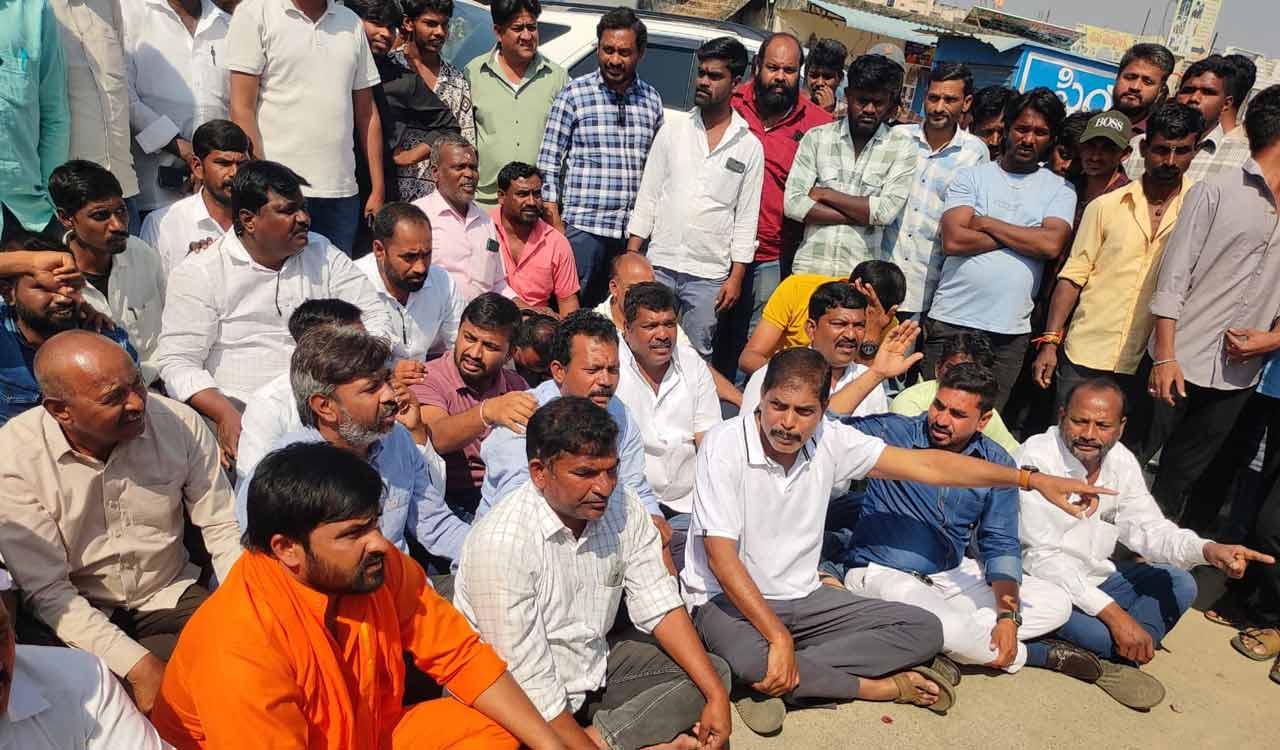Telangana agrarian crisis: Erratic power supply rubs salt into farmers’ wounds
Ryots see frequent and prolonged outages as an attempt to curtail subsidies, conserve resources

Hyderabad: Telangana has been celebrated as the only State in India to implement a 24×7 free power supply to all its farmers. However, after a change in government, though the initiative appears seamless on paper, the ground reality tells a different story. Despite official claims of uninterrupted power supply, many farmers report frequent and prolonged outages. This, coupled with the severe water crisis, has made life a predicament for them.
Since the introduction of this initiative on January 1, 2018, farmers have benefitted from transitioning from rainfed agriculture to irrigated systems, boosting crop production and income. This success story, however, came with challenges. The State has had to make substantial investments in higher generation and distribution capacities, leading to increased electricity consumption in the farm sector and proportionate rise in production of food grains. Providing free power means that the State’s subsidy burden also increased.
But farmers being the priority, BRS president K Chandrashekhar Rao, as Chief Minister, preferred no compromises on this count. The power supply to the farm sector, however, has not been the same during the 15-month rule of the Congress. Farmers on the ground face frequent interruptions. Officially, these are attributed to maintenance issues, but farmers perceive them as an attempt to curtail subsidies and conserve resources.
Since groundwater contributed considerably to the big boost given to irrigation in the State during the BRS regime, the 24×7 power supply has become indispensable. The agriculture sector accounts for over 40 per cent of the total demand for electricity in Telangana. The power demand in the State has been consistently high, with the State recording peak loads of over 15,000 MW every day since February 3. The energy consumption also reached a record high of 311.96 million units (MU) on February 19, exceeding the previous record of 311.04 MU set in March 2024.
Complaints of low voltage are on the increase. It is taking a big toll on motors and pump sets engaged by the farmers. As in the pre-2014 era, defunct pump sets/motors awaiting repairs are piling up with the village-level mechanics. At least 2,000 pump sets were burnt due to voltage-related issues in Devarakonda mandal alone in February. The cost of repairs also escalated by 30 percent compared to last year. Once the pump set is under repair, it is costing almost a bomb for the farmers. The cost had become prohibitive, said Sekhar Reddy, a farmer from Nalgonda district.
Tough time for farmers in Sangareddy
In this backdrop, farmers in Pulkal mandal of Sangareddy are in for trying time. They are facing severe challenges after relying on borewells to save their standing crops, especially paddy. Due to low voltage issues, they have been facing during the Yasangi season, motors were being burned out in a big way. Groundwater levels too have plummeted, causing crops to wither and fields to turn barren.
The situation being thus, farmers, for whom agriculture was a remunerative activity during the previous BRS government’s tenure, are now in a state of despair. Previously, the Singur Left Canal provided irrigation to 44,000 acres, but now, under the guise of CC lining, water is not being released for Yasangi crops, causing distress among farmers. They lament that such a dire situation had not occurred in the past decade.
Farmers used to cultivate paddy on over 20,000 acres, but now they are limited to just 16,000 acres in the mandal. Singur, once known for its lush green fields, is now witnessing a contrasting scenario under the Congress government’s administration. Farmers are highly skeptical of government initiatives that failed to address their concerns.
Worst-ever crisis in Wanaparthy
Farmers in the villages of Peddamandadi mandal, including Pata Jangamayapalli, Balijapalli and Erragadda Tanda, in Wanaparthy district were facing severe issues in respect of the power supply to the agriculture services. The frequent cuts in supply are leaving crops dried up. The low voltage problem has led to the burning out of motors, leaving farmers without adequate irrigation for their crops.
Farmers have been demanding replacement of the burnt transformers, But the officials have not addressed the issue, leaving the farmers frustrated and distressed. In the absence of uninterrupted electricity supply, crops are drying up. Paddy crops are being used for fodder for their cattle. Farmers express their concern and disappointment over the authorities’ negligence in resolving the low voltage problem.
In Suryapet and Yadadri Bhongir districts, farmers started relying more on the borewells, as the tanks and lakes started drying up. Paddy crops raised in the ayacut of SRSP Stage II and the Musi projects started bearing the brunt.
Related News
-
No ballot boxes misused in Kothagudem Municipal Corporation elections: Commissioner
8 hours ago -
Mahindra Last Mile Mobility Limited’s all-new e-auto, UDO
9 hours ago -
KNRUHS notifies mop-up counselling for PG medical seats
9 hours ago -
IIT Hyderabad, Mitsubishi Electric partner for advanced tech research
9 hours ago -
Caste boycott: Elders bar villagers from attending final rites in Jagtial village
9 hours ago -
Pakistan hockey team faces embarrassment in Australia over unpaid bills
9 hours ago -
India overpower Namibia ahead of Pakistan clash
9 hours ago -
Shanaka hits fastest fifty as Sri Lanka dominate Oman
9 hours ago



